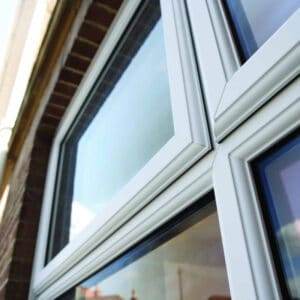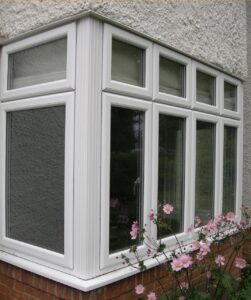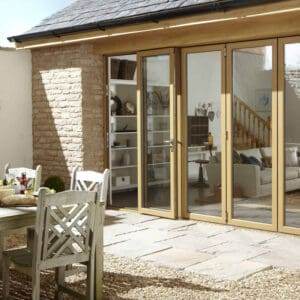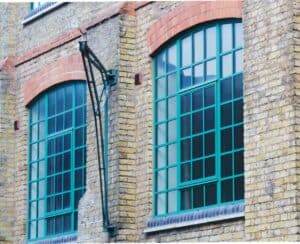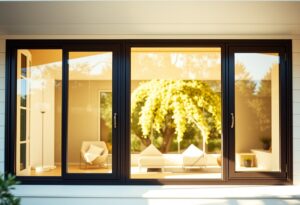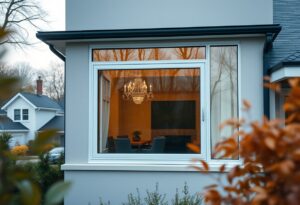Most contemporary architects and builders recognise the urgency of adopting sustainable building practices to mitigate environmental impact. In this exploration, you will discover how smart systems play a pivotal role in promoting energy efficiency, reducing waste, and enhancing overall building performance. By integrating advanced technologies into construction and management, you can significantly contribute to sustainability while enjoying the benefits of modern living. Join us on this informative journey as we probe into the innovative approaches that ensure your buildings are not only smart but also environmentally responsible.
Principles of Sustainable Building
The principles of sustainable building focus on minimising environmental impact while maximising efficiency, creating spaces that are not only functional but also harmonious with nature. By integrating smart systems, you can enhance these practices, driving forward a more sustainable and responsible approach to construction and design.
Energy Efficiency
For a building to be truly sustainable, energy efficiency must be a core principle. This involves utilising advanced technologies, such as LED lighting, smart thermostats, and energy-efficient appliances, to reduce energy consumption. You can achieve significant savings on energy bills while contributing to a reduction in greenhouse gas emissions.
Water Conservation
Efficiency in water usage is crucial for sustainable buildings. By incorporating water-saving devices like low-flow faucets, dual-flush toilets, and smart irrigation systems, you can significantly minimise water waste. This not only helps to preserve this precious resource but also lowers your utility expenses.
It’s crucial to recognise that water conservation extends beyond the installation of efficient fixtures. You should consider rainwater harvesting systems and greywater recycling to further enhance your water management systems. By doing so, you can create a closed-loop water system that optimises usage, reduces dependence on external water sources, and contributes to a more sustainable environment.
Smart Systems in Building Design
Clearly, the integration of smart systems into building design not only enhances functionality but also promotes sustainability. By leveraging advanced technologies, you can create more efficient spaces that lessen environmental impact while improving the quality of life for occupants. This approach ensures that your buildings not only meet today’s needs but also stand the test of time, adapting to future challenges.
Green Roofs and Walls
With the implementation of green roofs and walls, you can significantly improve the thermal efficiency of your building. These green spaces not only provide insulation but also reduce urban heat and promote biodiversity. By incorporating natural elements, you enhance the aesthetic appeal and create a healthier environment for residents and the surrounding community.
Renewable Energy Integration
Any successful sustainable building strategy requires the effective integration of renewable energy sources. This not only reduces reliance on fossil fuels but also lowers operating costs and your building’s carbon footprint. By harnessing sunlight, wind, or geothermal energy, your design can achieve remarkable efficiency breakthroughs, paving the way for a greener future.
Energy integration in buildings often involves photovoltaic panels, solar thermal systems, or wind turbines, which can be tailored to meet specific energy needs. By implementing these technologies, you not only decrease utility bills but also contribute to energy independence and resilience against fluctuating energy prices. This holistic approach to design enables you to maximise energy efficiency while supporting a sustainable and eco-friendly lifestyle.
Implementing Sustainable Practices
Now, as you begin on the journey towards sustainable building practices, one critical focus is on waste reduction and recycling. Implementing effective waste management strategies not only minimises the environmental impact of construction activities but also promotes a circular economy. By adopting practices such as recycling materials and reducing excess waste, you contribute to creating a more sustainable future.
Indoor Air Quality Improvement
The quality of air within your building significantly affects the health and wellbeing of its occupants. By integrating smart systems that monitor and enhance indoor air quality, you can create a healthier living or working environment. This involves the use of high-efficiency filters, proper ventilation, and the monitoring of humidity levels.
For instance, employing smart sensors to detect pollutants and adjust ventilation accordingly can greatly enhance indoor air quality. These systems not only ensure that fresh air is circulated but also actively filter out harmful substances, thereby promoting a safer space for everyone. By prioritising these practices, you contribute to the overall health of your environment and its inhabitants.

Challenges and Opportunities
Unlike traditional building practices, the implementation of smart systems in sustainable construction presents a unique set of challenges and opportunities that need to be navigated to maximise benefits.
Cost-Benefit Analysis
To evaluate the feasibility of integrating smart systems, it is vital to conduct a thorough cost-benefit analysis. This entails assessing the initial investment against long-term savings and operational efficiency, ensuring that you make an informed decision that aligns with your sustainable goals.
Policy and Regulatory Frameworks
To successfully adopt smart systems for sustainable building, understanding the existing policy and regulatory frameworks is crucial. These regulations can either hinder or facilitate the integration of advanced technologies, shaping your project’s viability and impact.
Opportunities exist for you to engage with policymakers to influence the creation of supportive frameworks that encourage the adoption of smart systems. By advocating for clearer regulations and incentives, you can help pave the way for broader acceptance and implementation, ultimately contributing to a more sustainable built environment. Your involvement can lead to a more cohesive strategy that bridges innovation with practicality in sustainable building practices.
Summing up
Summing up, exploring smart systems in sustainable building practices offers you a transformative approach to construction and living. By embracing these innovations, you can significantly reduce environmental impacts while enhancing comfort, efficiency, and longevity in your surroundings. Your commitment to utilising smart technologies not only paves the way for a more sustainable future but also empowers you to make informed choices that align with ecological responsibility. Ultimately, integrating such systems into your environment signifies a profound step towards harmonious living and a vibrant planet.
FAQ
Q: What are smart systems in sustainable building practices?
A: Smart systems in sustainable building practices refer to the integration of advanced technologies and automated systems that enhance the efficiency, sustainability, and functionality of a building. These systems often include smart energy management, water conservation technologies, and environmental controls that respond to the occupants’ needs and external conditions. By utilising sensors, IoT (Internet of Things) devices, and data analytics, smart buildings can optimise resource use, reduce waste, and improve overall performance, contributing to a more sustainable and eco-friendly environment.
Q: How do smart systems contribute to energy efficiency in buildings?
A: Smart systems contribute to energy efficiency in buildings by constantly monitoring and analysing energy consumption patterns. For instance, smart lighting systems can adjust intensity based on natural light availability or occupancy, while heating, ventilation, and air conditioning (HVAC) systems can dynamically respond to real-time temperature data. Additionally, smart energy management systems can provide detailed insights and analytics, allowing building managers to identify areas for improvement, implement energy-saving measures, and ultimately reduce the building’s carbon footprint, leading to lower operational costs and enhanced sustainability.
Q: What role do sustainable building materials play in smart systems?
A: Sustainable building materials play a critical role in smart systems by providing a foundation for energy-efficient and environmentally responsible construction. These materials, such as recycled, reclaimed, or rapidly renewable resources, contribute to reduced environmental impact and enhance the longevity and performance of the building. When combined with smart systems, sustainable materials can enhance overall building resilience, thermal efficiency, and air quality. For instance, smart systems can monitor the condition and performance of these materials over time, ensuring they continue to meet sustainability standards and providing valuable data to inform future building practices and decisions.

